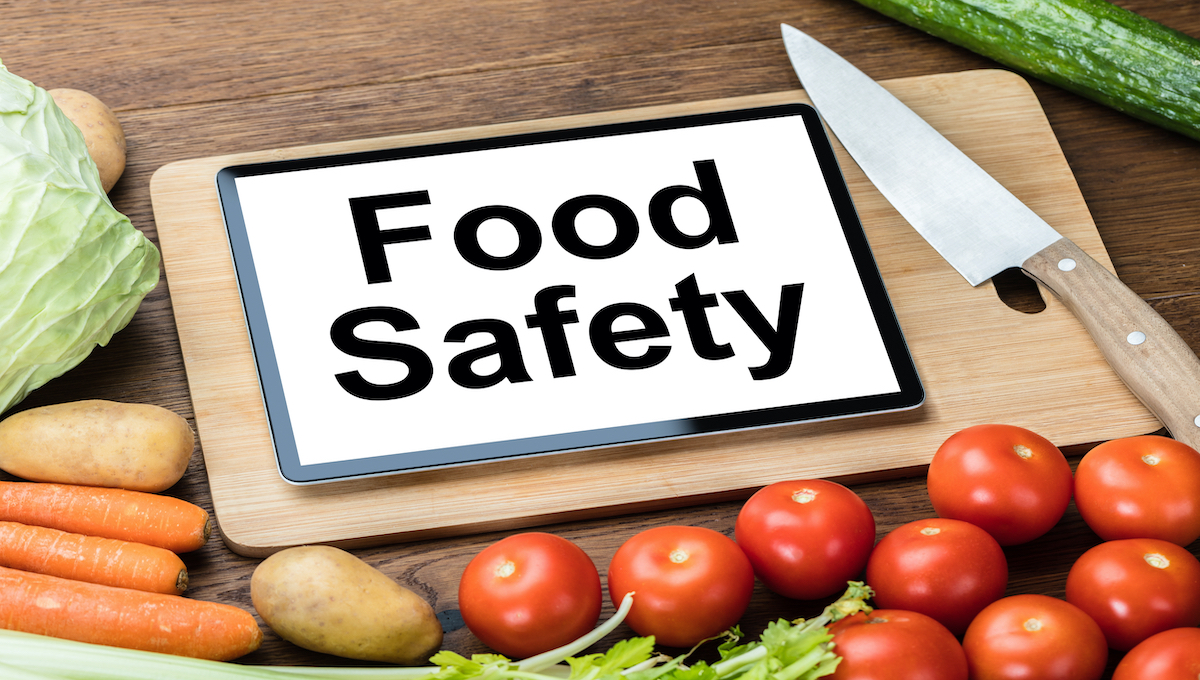Future Food Safety

The need of readiness in handling food safety incidents—which can range in severity from minor to severe—is underscored by World Food Safety Day in 2024. These situations, which might be caused by mishaps, insufficient controls, food fraud, or natural disasters, may present verified or possible health concerns. It is the duty of legislators, authorities, farmers, food industry operators, and consumers to ensure food safety.
The Underappreciated Significance of Food Safety
Despite the close connections between food safety, sustainability, nutrition, and security, food safety is frequently disregarded. Resources are occasionally excessively allocated to guarantee the safety of exported goods, jeopardizing local food safety—even in nations with strong levels of food security. Populations that are vulnerable and food insecure are disproportionately impacted, as they face both acute and long-term health hazards, such as diarrheal illnesses and aflatoxins exposure that can cause cancer. These challenges cause serious social and economic consequences, including missed revenue and market access, and also aggravate health issues.
The Changing Worldwide Setting
A strong commitment to bolstering national food control systems and preventive measures throughout the food chain is required due to the changing global context, which includes increased food consumption and new technology for food production. It will take creative thinking without sacrificing food safety to achieve the Sustainable Development Goals (SDGs), which include ending hunger and poverty, providing access to clean water, managing land sustainably, producing and consuming food in a responsible manner, reducing climate change, and ensuring a sustainable life on land and in water. The "NourishNet" integrative framework, which also addresses food security and sustainability, is discussed in this article. It strengthens food safety procedures within contemporary food systems.
Global Issues Connecting Sustainability, Safety, and Food Security
Growing Need for Food: Specialty foods such as fruits and nuts, dairy products, and meat are in demand as living conditions improve and purchasing power increases in developing nations. Furthermore, an increasing trend among customers in industrialized nations is to choose products that are locally sourced, fair-trade, or organic. Alternatives made of plants have also grown in favor recently.
Environmental Pressure: The increase in food demand has put a strain on sustainable food production and food safety, leading to a major demand for natural resources. These difficulties include pollution of the environment, biodiversity loss, and soil erosion. Furthermore, there are significant risks to food security and safety from epidemics and calamities. Contaminants including infections, pesticides, and heavy metals can seep into the air, water, and settings where food is produced during natural catastrophes like fires and floods.
Transboundary Diseases: Due to the high rate of animal mortality and morbidity caused by highly contagious diseases, worries regarding transboundary diseases have grown as trade and travel have become more globalized. These epidemics have a disastrous effect on food prices and availability, which is bad news for farmers. Furthermore, a concern to public health exists since some of these illnesses might be zoonotic.
A Future-Oriented Integrative Framework for Food Safety
The Idea of One Health: In 2020, Sara Garcia and associates proposed the idea of "One Health" as a means of enhancing the sustainability, well-being, and health of people, animals, and the environment. The idea behind One Health is to maximize and balance the health of people, animals, and the environment. Preventing, anticipating, detecting, and responding to global health hazards like COVID-19 is particularly crucial.
Multidisciplinary Collaboration: Garcia and colleagues state that in order to ensure the health and well-being of people, animals, and the environment, a multidisciplinary team must collaborate, just like in any One Health program. In order to effectively adopt sustainable agriculture practices, it is imperative to convene specialists from academic, government, private, and public institutions to effect significant changes in public awareness, legislation, and practices.
NourishNet Framework: Developed in accordance with One Health, NourishNet is focused on developing secure, safe, and sustainable food systems. Beyond health risks, the framework covers a wider variety of food-related issues, such as food production, distribution, consumption, and waste management. It seeks to address issues brought on by shifting agricultural systems, growing food demand, and technology breakthroughs.
NourishNet's Four Pillars
Prevention: To avoid contamination and foodborne illnesses along the whole food supply chain, implement strict hygiene measures, conduct routine inspections, and abide by safety rules. Provide farmers, handlers, and operators with training and education on rising dangers and recommended practices. Track, identify risks early, and take prompt action with cutting-edge technologies like blockchain, AI, and IoT.
Protection: To find and fix possible risks in the food supply chain, do routine risk assessments. Create crisis communication plans and alert networks as part of your emergency response systems. To improve general food safety, inform customers about safe food handling techniques through campaigns and outreach initiatives.
Encourage cooperation between governmental bodies, corporations, civil society, and the private sector in order to create comprehensive food safety plans. Encourage a culture of responsibility by getting the local community involved in food safety programs. To keep people's faith and compliance, make sure food safety procedures are transparent and accountable.
Policy: To promote international trade and guarantee food safety, harmonize food safety regulations worldwide. To minimize waste, save the environment, and conserve resources, combine food safety with sustainability initiatives. Maintaining the efficacy and flexibility of food safety policies in the face of new challenges requires constant monitoring and evaluation.
In summary
On World Food Safety Day in 2024, the importance of integrated frameworks like NourishNet will be highlighted along with the necessity of being prepared when handling food safety events. Food safety, security, and sustainability are interconnected concerns that NourishNet addresses by embracing prevention, protection, participation, and policy. Adopting a comprehensive strategy guarantees strict guidelines, ongoing education, cutting-edge technologies, resilient emergency protocols, community involvement, stakeholder cooperation, open procedures, and long-term regulations. By doing this, NourishNet hopes to build a robust food system that can meet the world's growing food needs while preserving the environment and public health, ultimately assisting in the accomplishment of the Sustainable Development Goals (SDGs).
